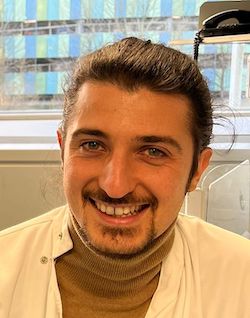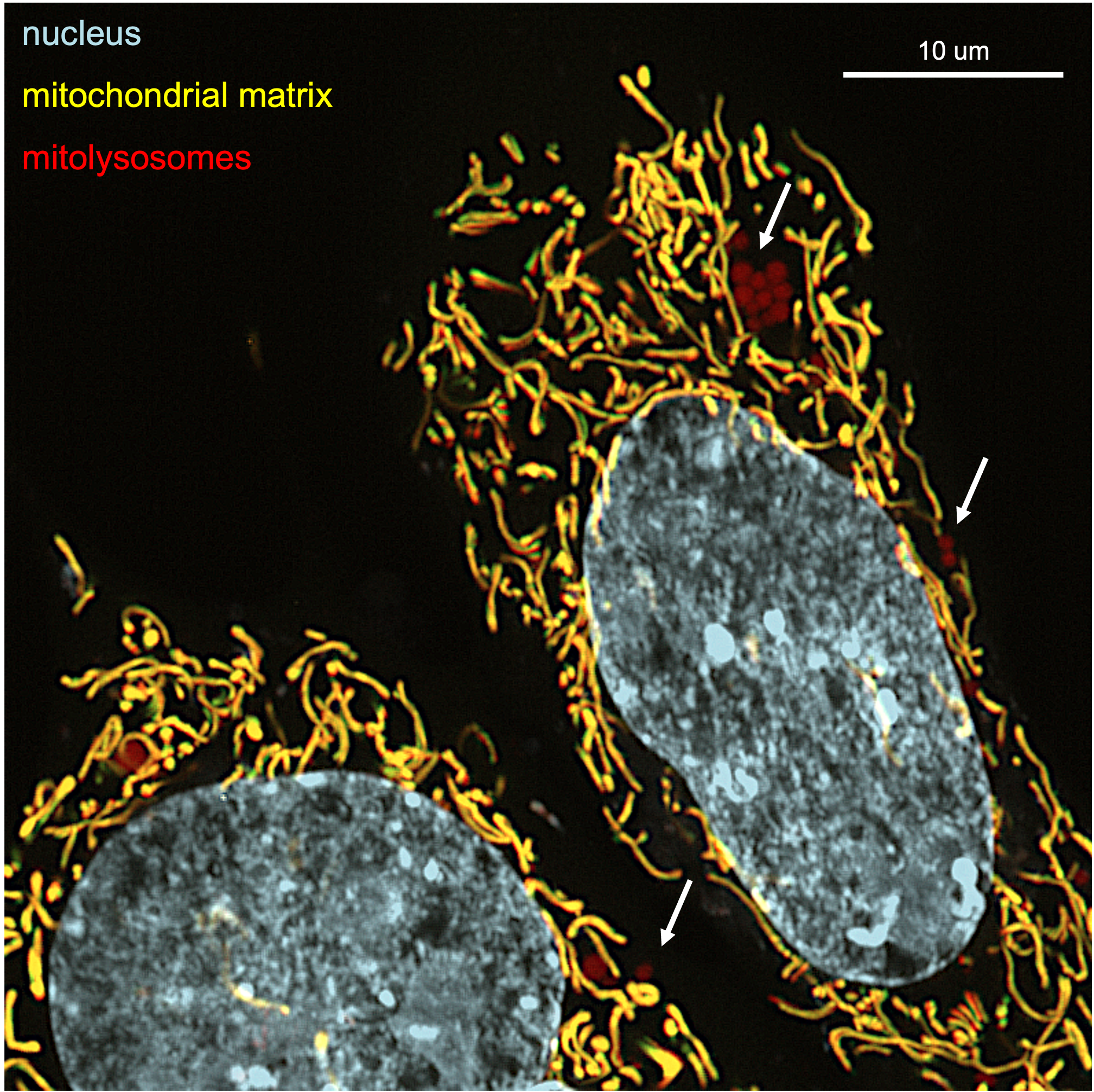Biography
Dr Michele Frison is a cellular biologist with an eye on the role of science and scientist within society. He graduated in Biochemistry from University College London in 2013 with a first class honours degree and directly moved on to undertake a LiDo PhD (London Interdisciplinary Doctoral Programme) within the lab of Michelangelo Campanella at the Royal Veterinary College. During his PhD, he also chose to take an internship at the BBSRC, to learn more about policymaking in science. Having submitted in 2017, he worked on a short project in Campanella's lab to establish a mitochondrial inflammatory marker for drug screening assays. Successively, on 2018 he then moved to the MBU, to work in the lab of Patrick Chinnery. In 2020, he assembled the most environmentally conscious MBU members to form the Green Team, interfacing with the MBU administration to reduce the institute's environmental impact. He had since remained chair, leading the Green Team to win several awards and become one of the most pro-active institutes within the MRC and the University of Cambridge.
Research Interests
Dr Michele Frison is essentially a mitophagy enthusiast, focussing on disease contexts where this quality control system is evaded. During his PhD he studied the role of the anti-mitophagy protein named TSPO, a neuroinflammatory marker used in clinical imaging, in models of Parkinson’s disease and other degenerative conditions. Guided by the question of why mitochondrial DNA mutations persist during ageing and mitochondrial disease, he joined Patrick Chinnery's lab, where state-of-the-art techniques are constantly refined to assay mitochondrial heteroplasmy. Within the lab, he developed protocols for differentiation of heteroplasmic human and mouse pluripotent stem cells down the neural lineage, eventually expanding onto a major project using the tRNA-alanine mouse models of mitochondrial disease.
Figure legend: confocal images of Mouse Embryonic Fibroblasts carrying the m.5024C>T heteroplasmic point mutation, expressing matrixQC, a mitochondrial quality control fluorescent reporter (Long et al., 2022; EMBO Journal) and treated with a USP30 inhibitor.
Selected Publications
Michele Frison, Danilo Faccenda, Rosella Abeti, Manuel Rigon, Daniela Strobbe, Britannie S. England-Rendon, Diana Cash, Katy Barnes, Mona Sadeghian, Marija Sajic, Lisa A. Wells, Dong Xia, Paola Giunti, Kenneth Smith, Heather Mortiboys, Federico E. Turkheimer, Michelangelo Campanella (2021)
The translocator protein (TSPO) is prodromal to mitophagy loss in neurotoxicity
Molecular Psychiatry 26:2721–2739
Nikolaos D Georgakopoulos, Michele Frison, Maria Soledad Alvarez, Hélène Bertrand, Geoff Wells & Michelangelo Campanella (2016)
Reversible Keap1 inhibitors are preferential pharmacological tools to modulate cellular mitophagy
Scientific reports 7:10303 doi:10.1038/s41598-017-07679-7
Michele Frison, Anna Katherina Mallach, Emma Kennedy, Michelangelo Campanella (2017)
The 18 kDa Translocator Protein (TSPO): Cholesterol Trafficking and the Biology of a Prognostic and Therapeutic Mitochondrial Target.
Book chapter within: Molecular Basis for Mitochondrial Signaling pp 285–315



